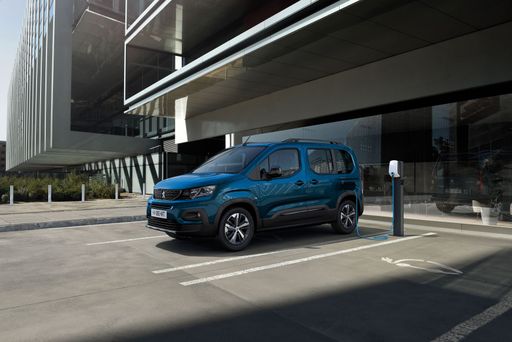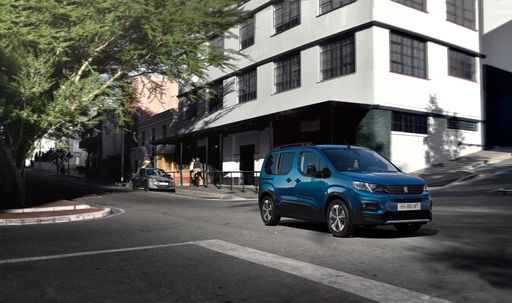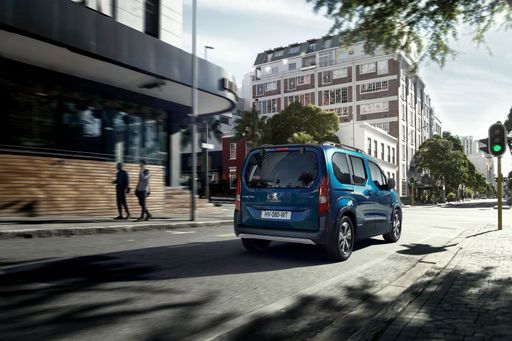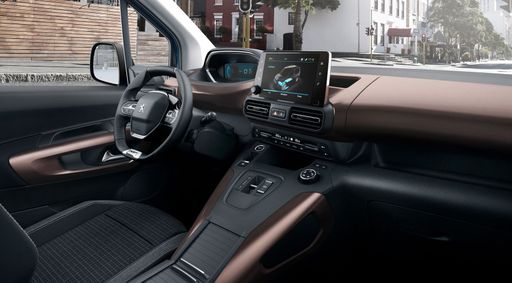Peugeot Rifter vs NIO EL8 – Differences & prices compared
Everyday use, family trips or long-distance drives – here’s where the differences show.
Discover whether Peugeot Rifter or NIO EL8 fits your lifestyle better.
Costs and Efficiency:
Price and efficiency are often the first things buyers look at. Here it becomes clear which model has the long-term edge – whether at the pump, the plug, or in purchase price.
Peugeot Rifter has a clearly advantage in terms of price – it starts at 23800 £, while the NIO EL8 costs 71100 £. That’s a price difference of around 47237 £.
In terms of energy consumption, the advantage goes to the Peugeot Rifter: with 18.30 kWh per 100 km, it’s to a small extent more efficient than the NIO EL8 with 21.20 kWh. That’s a difference of about 2.90 kWh.
As for range, the NIO EL8 performs evident better – achieving up to 510 km, about 171 km more than the Peugeot Rifter.
Engine and Performance:
Power, torque and acceleration say a lot about how a car feels on the road. This is where you see which model delivers more driving dynamics.
When it comes to engine power, the NIO EL8 has a significantly edge – offering 653 HP compared to 136 HP. That’s roughly 517 HP more horsepower.
In acceleration from 0 to 100 km/h, the NIO EL8 is significantly quicker – completing the sprint in 4.10 s, while the Peugeot Rifter takes 10.80 s. That’s about 6.70 s faster.
In terms of top speed, the NIO EL8 performs barely noticeable better – reaching 200 km/h, while the Peugeot Rifter tops out at 184 km/h. The difference is around 16 km/h.
There’s also a difference in torque: NIO EL8 pulls significantly stronger with 850 Nm compared to 300 Nm. That’s about 550 Nm difference.
Space and Everyday Use:
Whether family car or daily driver – which one offers more room, flexibility and comfort?
Seats: Peugeot Rifter offers somewhat more seating capacity – 7 vs 6.
In curb weight, Peugeot Rifter is clearly lighter – 1561 kg compared to 2613 kg. The difference is around 1052 kg.
In terms of boot space, the Peugeot Rifter offers convincingly more room – 1050 L compared to 265 L. That’s a difference of about 785 L.
In maximum load capacity, the Peugeot Rifter performs clearly better – up to 3500 L, which is about 2690 L more than the NIO EL8.
When it comes to payload, Peugeot Rifter evident takes the win – 814 kg compared to 577 kg. That’s a difference of about 237 kg.
Who wins the race?
The Peugeot Rifter proves to be leads convincingly overall and therefore becomes our DriveDuel Champion!
Peugeot Rifter is the better all-rounder in this comparison.

Peugeot Rifter
Peugeot Rifter
Der Peugeot Rifter beeindruckt mit seinem robusten Design und seiner hohen Vielseitigkeit, die ihn ideal für Familien und Outdoor-Abenteuer macht. Der Innenraum ist geräumig gestaltet und bietet zahlreiche innovative Technologien, die den Komfort und die Sicherheit der Insassen erhöhen. Zudem überzeugt der Rifter mit seiner hervorragenden Fahrdynamik, die sowohl in der Stadt als auch auf längeren Strecken für ein angenehmes Fahrerlebnis sorgt.
details @ media.stellantis.com
@ media.stellantis.com
 @ media.stellantis.com
@ media.stellantis.com
 @ media.stellantis.com
@ media.stellantis.com
 @ media.stellantis.com
@ media.stellantis.com
NIO EL8
The NIO EL8 is an innovative electric SUV that embodies the perfect blend of cutting-edge technology and sophisticated design. It offers a spacious and luxurious interior, making it an ideal choice for both city driving and long-distance journeys. With its advanced battery technology, the EL8 promises impressive range capabilities, setting a new standard for electric mobility.
details

|
|
|
|
|
Costs and Consumption |
|
|---|---|
|
Price
23800 - 36600 £
|
Price
71100 - 90800 £
|
|
Consumption L/100km
5.6 - 6 L
|
Consumption L/100km
-
|
|
Consumption kWh/100km
18.3 - 19.1 kWh
|
Consumption kWh/100km
21.2 - 22 kWh
|
|
Electric Range
328 - 339 km
|
Electric Range
390 - 510 km
|
|
Battery Capacity
-
|
Battery Capacity
73.5 - 90 kWh
|
|
co2
0 - 158 g/km
|
co2
0 g/km
|
|
Fuel tank capacity
50 L
|
Fuel tank capacity
-
|
Dimensions and Body |
|
|---|---|
|
Body Type
High Roof Estate
|
Body Type
SUV
|
|
Seats
5 - 7
|
Seats
6
|
|
Doors
4 - 5
|
Doors
5
|
|
Curb weight
1561 - 1941 kg
|
Curb weight
2613 - 2633 kg
|
|
Trunk capacity
322 - 1050 L
|
Trunk capacity
265 L
|
|
Length
4405 - 4755 mm
|
Length
5099 mm
|
|
Width
1848 mm
|
Width
1989 mm
|
|
Height
1818 - 1837 mm
|
Height
1750 mm
|
|
Max trunk capacity
3000 - 3500 L
|
Max trunk capacity
810 L
|
|
Payload
489 - 814 kg
|
Payload
557 - 577 kg
|
Engine and Performance |
|
|---|---|
|
Engine Type
Electric, Diesel
|
Engine Type
Electric
|
|
Transmission
Automatic, Manuel
|
Transmission
Automatic
|
|
Transmission Detail
Reduction Gearbox, Manual Gearbox, Automatic Gearbox
|
Transmission Detail
Reduction Gearbox
|
|
Drive Type
Front-Wheel Drive
|
Drive Type
All-Wheel Drive
|
|
Power HP
102 - 136 HP
|
Power HP
653 HP
|
|
Acceleration 0-100km/h
10.8 - 13.6 s
|
Acceleration 0-100km/h
4.10 s
|
|
Max Speed
132 - 184 km/h
|
Max Speed
200 km/h
|
|
Torque
250 - 300 Nm
|
Torque
850 Nm
|
|
Number of Cylinders
4
|
Number of Cylinders
-
|
|
Power kW
75 - 100 kW
|
Power kW
480 kW
|
|
Engine capacity
1499 cm3
|
Engine capacity
-
|
General |
|
|---|---|
|
Model Year
2024
|
Model Year
2024
|
|
CO2 Efficiency Class
A, E, F
|
CO2 Efficiency Class
A
|
|
Brand
Peugeot
|
Brand
NIO
|
What drivetrain options does the Peugeot Rifter have?
The Peugeot Rifter is offered with Front-Wheel Drive.
The prices and data displayed are estimates based on German list prices and may vary by country. This information is not legally binding.
